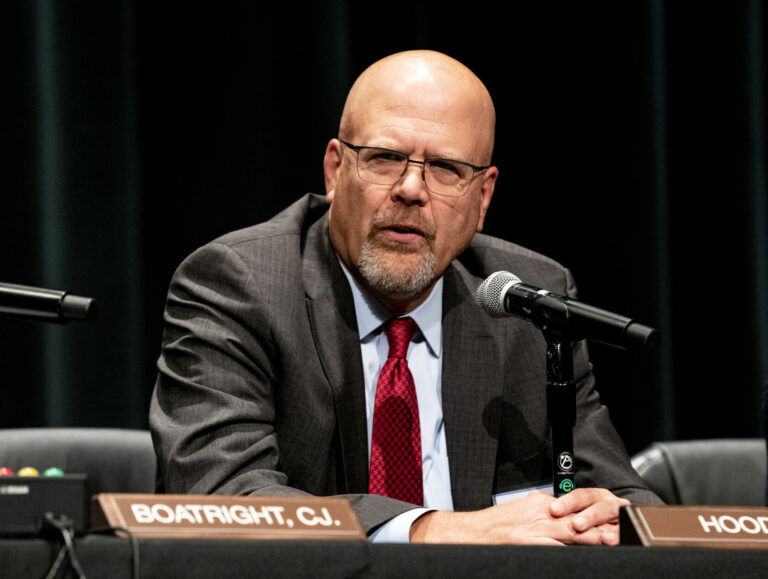Appeals court allows ex-Boulder council candidate’s defamation lawsuit to proceed against activist

Colorado’s second-highest court more precisely defined the contours of defamatory online speech last week, allowing a former Boulder City Council candidate’s lawsuit to proceed against a political activist who created an impersonation Twitter account that linked to unflattering material about the candidate.
At the same time, a three-judge panel of the Court of Appeals declined to address whether a person is liable for defamation for simply reposting a link that contains damaging, untruthful information. Nor did it indicate what type of content would lead “no reasonable internet user” to believe an impersonation account is genuine.
Instead, Judge Terry Fox wrote in the Aug. 3 opinion that Steven Rosenblum demonstrated he would likely succeed on his specific defamation claim. The fake account with his name on it coupled with the link to damaging material could lead people to believe Rosenblum, himself, was the messenger.
“The ‘account + link’ combination could reasonably be interpreted to communicate an idea: that Rosenblum created the Twitter account for campaign purposes and that Rosenblum’s campaign validated or endorsed the contents,” Fox explained.
Case: Rosenblum v. Budd
Decided: August 3, 2023
Jurisdiction: Boulder County
Ruling: 3-0
Judges: Terry Fox (author)
Craig R. Welling
W. Eric Kuhn
Background: Colorado appeals court agrees statements related to high-profile suicide are protected speech
In recent months, the Court of Appeals has analyzed Colorado’s relatively new “anti-SLAPP” law, which stands for “strategic lawsuits against public participation.” The legislature enacted the law in 2019 to provide a mechanism to quickly dispose of litigation that implicates a person’s First Amendment rights – specifically, the rights to free speech and to petition the government.
To date, the court has sided with dissatisfied customers sued over negative online reviews of businesses, a woman who spoke out about domestic violence on social media and a Planned Parenthood executive who criticized a series of misleading videos about fetal tissue donation. Rosenblum’s lawsuit, however, raised the question of how social media impersonation accounts should be treated.
Rosenblum ran for Boulder City Council in 2021, losing by fewer than 2,000 votes. Shortly before the election, he filed suit against housing activist Eric Budd, leaders of the Boulder Progressives organization and an unidentified “John Doe.”
Rosenblum alleged that Doe created a website titled “Safer Leaks,” in which Doe posted screenshots from the Slack channel of Safer Boulder – a group that took a harder line against homelessness in favor of public safety. The images illustrated Safer Boulder members suggesting the use of fire hoses on encampments, calling homeless people “meth addicts” and advocating for Safer Boulder to “spy on” progressive groups’ meetings.
Initially, Safer Leaks also identified posts from a Reddit user as coming from Rosenblum himself. It posted screenshots from Reddit in which Rosenblum, who was a member of Safer Boulder, allegedly used derogatory terms for homeless people and advocated against masking during the pandemic. Rosenblum was not, in fact, behind the account and Budd was reportedly aware of that.
Nonetheless, Budd, who was himself a former city council candidate, created a Twitter account for Rosenblum, @steveforboulder, and linked to the Safer Leaks website. The account was public while the incendiary screenshots misidentifying Rosenblum as the Reddit user were still on Safer Leaks.
While multiple progressive organizations were considering which candidates to endorse, the Boulder Progressives circulated a letter slamming Rosenblum and pointing to the content on Safer Leaks. Consequently, Rosenblum did not receive the groups’ endorsements.
“Defendants acted together with a common objective – destroy Rosenblum’s reputation and standing in the Boulder community and derail his campaign for Boulder City Council in the process,” his lawyers wrote.
Budd and the Boulder Progressives leaders sought to dismiss Rosenblum’s lawsuit under the anti-SLAPP law. Last year, District Court Judge Thomas F. Mulvahill rejected the request. He found Budd’s fake Twitter account could lead a reasonable person to think Rosenblum himself endorsed the contents of Safer Leaks, and that a jury could find the Boulder Progressives carried out a conspiracy against Rosenblum.
During oral arguments earlier this year, the Court of Appeals panel questioned whether the Twitter account was protected speech.
“If the original Twitter account he put up was just ‘Do not vote for Steve Rosenblum’ and contained a link to the Safer Leaks blog, would that be actionable?” asked Judge Craig R. Welling.
“It’s an open question in Colorado whether republication of a link by itself can be defamatory,” responded attorney Christopher O. Murray for Rosenblum.
“If there was some context that made it pretty clear it was a parody or not really him,” Welling pressed, “would that change the analysis?”
It would, said Murray.
Ultimately, the panel disagreed with Budd that Twitter users could tell the account – with zero followers and zero posts – was not Rosenblum.
“Moreover, the lack of any surrounding content actually undermines Budd’s argument in this regard, as there is no added context – such as the use of parody, satire, or hyperbole – that would potentially put a reader on notice that neither Rosenblum nor his campaign was the speaker,” Fox wrote.
She added that the panel had no opinion about whether simply reposting the link could be defamatory, as Budd had done more than that by pairing the link with the fake account.
At the same time, the panel agreed that Budd and the Boulder Progressives could not be liable for a conspiracy. At most, Fox elaborated, the allegations portrayed a group of people with similar political ideologies who coordinated to “oppose a candidate who they disagreed with – an entirely lawful course of conduct to reach a lawful goal.”
The parties each spoke positively of the ruling to The Daily Camera, with Rosenblum’s lawyer calling it a “very strong endorsement” of the claims against Budd. Budd said it was a “massive win for free speech and working on elections.”
The appellate judges also addressed a novel issue under the anti-SLAPP law, deciding a party who partially prevails on appeal can seek some amount of attorney fees.
The case is Rosenblum v. Budd et al.












